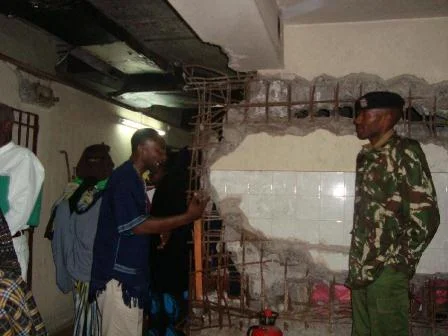2014 THEME: FIGHTING IMPUNITY
On June 26th every year the world marks the International Day in Support of Victims of Torture. Today the world stands in solidarity with victims of torture, to reiterate the fact that torture is a gross and cruel violation of human rights. The day is anchored in the United Nations Convention against Torture (UNCAT) that seeks Protection of All Persons from Being Subjected to Torture and Other Cruel, Inhuman or Degrading Treatment or Punishment. Kenya ratified the convention in 1997.
The theme for this year’s campaign is Fighting Impunity.
The Constitution and Legal Framework for Torture in Kenya
Articles 25 and 29 of the Constitution of Kenya provides for the freedom from torture and cruel, inhuman or degrading treatment or punishment as a fundamental right that may not be limited. The UNCAT obligates governments to take effective measures to prevent torture, and Other Cruel, Inhuman or Degrading Treatment or Punishment within their jurisdictions.
Despite its prohibition under both international and national law, torture and related human rights violations are still prevalent in Kenya. Independent surveys by the Independent Medico-legal Unit (National Torture prevalence Survey 2011) and Amnesty International (Torture in 2014:30 Years of Broken Promises) indicate that torture in Kenya is particularly perpetrated by police and prisons officers.
Torture methods ranging from beatings, electric shocks, prolonged isolation, sleep deprivation and denial of medical care are being used by law enforcement officers to expeditiously extract information from suspects as a short cut to the judicial process or as a means of punishment.
Remedies for Torture in Kenya
As such, to effectively combat torture and Other Cruel, Inhuman or Degrading Treatment or Punishment in Kenya effective policing and prisons reforms must be implemented. The government must institute legislative and policy reforms to effect both the constitution of Kenya and international treaties that guarantee Kenyans their inalienable rights against torture.
On the occasion of the UN Day in support of Victims of Torture we wish to remind the government that:
- Article 1 of the UNCAT obliges member states to enact legislation that comprehensively defines and makes torture a specific offence; providing for effective right to reparation for victims of torture. Kenya has not enacted such a law. We urge the government to table the Prevention of Torture Bill 2011 in parliament to provide for the specific legal framework for combating torture and related violations.
- The United Nations Standard Minimum Rules for the Treatment of Prisoners (UNSMR) provides for humane treatment of prisoners and detainees. Monitoring of these minimum standards is critical in combating torture and related human rights violations in places of detention. We urge the government to ratify the Optional Protocol to the Convention against Torture and other Cruel, Inhuman or Degrading Treatment or Punishment (OPCAT) to provide a system of regular monitoring of places where prisoners and detainees are likely to be deprived of their liberty.
- Effective investigations for unnatural deaths in Kenya have hindered access to justice for victims of torture and related human rights violations. The country has never had concrete and adequate laws to address matters relating to investigations of deaths by violent criminal acts, extra-judicial killings, or deaths in the prison or police custody. As such we urge the government to expeditiously table in parliament the National Coroners Service Bill, 2011 that provides for effective investigations and documentation on unnatural deaths.
- Effective documentation of torture and related violations is critical in seeking legal redress for victims. We urge the government to review the “P3” form to ensure compliance with the Istanbul Protocol (Manual on the Effective Investigation and Documentation of Torture and Other Cruel, Inhuman or Degrading Treatment or Punishment, 2004).The form should also be made available free of charge in all public hospitals.
- Ever the years victims of torture and Other Cruel, Inhuman or Degrading Treatment or Punishment have lodged successful complaints in courts of law demanding compensation. The passivity of the government in executing or honoring judgments that award compensation to victims of torture has been a significant barrier to the search for justice. The government must put in place a Torture compensation Fund to ensure victims are promptly compensated after a successful judicial process.


